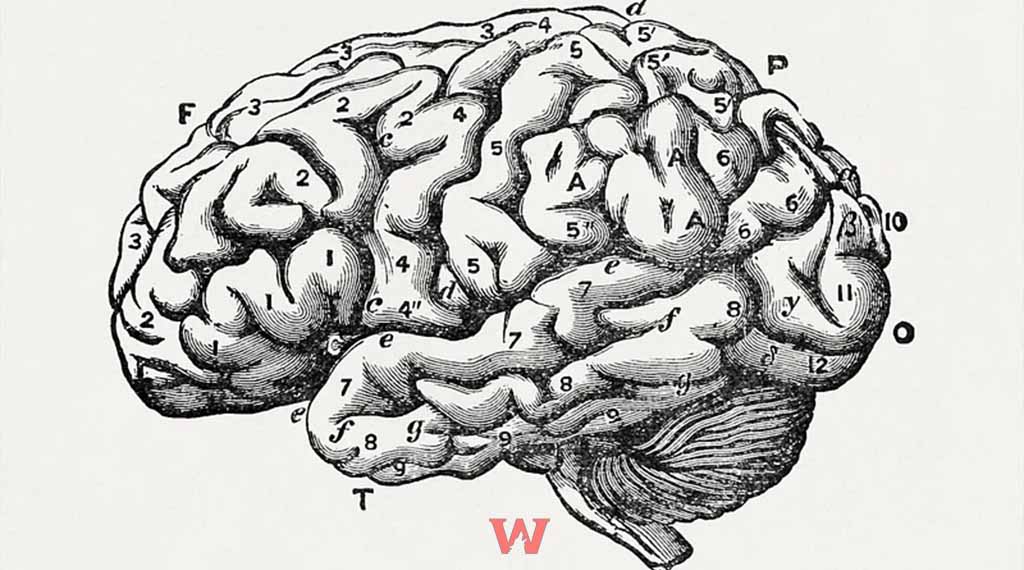A person’s IQ has long been a determinant of a their intelligence, with 100 being the average quotient of 100. OJ Simpson has been given the IQ of 89 by an unclaimed source, while the highest IQ measurement (as recorded in the Guinness Book Of World Records) goes to Marilyn Vos Savant, with a stunning score of 228 (though that claim comes from Marilyn herself). However, Savant has given the world “Dear Abby” newspaper-style columns, as well as a few books that have been attributed to this column.
So is the IQ even warranted as a determinant of intelligence? The truth is that it is likely a poor representation of one’s intelligence anyway. If you’re interested in how intelligence and success don’t always go hand in hand, you’ll also want to read about the dumbest ways people became millionaires, a fascinating look at how luck, timing, and unconventional thinking have led to massive fortunes. But we are not blowing smoke with that claim. Here we will talk about 8 reasons the IQ is meaningless in terms of intelligence measurement.
TOP 8 Mind-Blowing Reasons The IQ Is Meaningless

1. The IQ Original Purpose
The origins of the IQ test are rooted in the work of Theodore Simone and Alfred Binet who formulated the first standardized test, though it was intended to measure one’s verbal capacity rather than the mental one. The goal of the test was to detect variations of mental retardation in children. In 1912, William Stern took the test a step further by trying to apply its utilization to determine the disparity between a child’s chronological age to his/her mental age.
In this study, Stern derived the term intelligence quotient which was based on a formula that divides the mental age of the child by the chronological, then multiplying that result by 100. So if a 10-year-old child is determined to have a mental age of a 5-year-old, their IQ is 50. The real challenge of this theory, of course, lies in determining the child’s mental age accurately.
The mental age reaches its maturity by the time the person turns 15, making the IQ test no longer vital. Until then, a child whose chronological age exceeds their mental age is considered as having a low IQ. The IQ is still measured today, and it is determined via two primary tests: the Weschler and the Standford-Binet. Albert Einstein (who we will meet a few more times on this list) scored a 186 as a child, but only 160 on the former. To explain why, it is important to understand that these tests were never meant for those who score exceptionally high.
Exceptionally high scores are almost always inaccurate. The high-end of the scoring range on the Stanford-Binet is 180, with no real precedent for anyone measuring higher than that, so the results that exceed that number are always to be taken with caution. Of course, it’s fair to say that the taker of the test is more adaptable, versatile, and retains information better, but is 186 a score that much more impressive than 176? Does that really make the 186 smarter?
The low end of the scores when the test is applied to children, however, are regarded as being very accurate. There might not be a large disparity between the numbers 69 and 79, but the difference is certainly noticeable. The test can distinguish between the two and even help to explain the score itself. With the current testing methodology, the only way to validate a high IQ score is to make the questions harder. Jumbled words are longer, spatial reasoning diagrams require more time to deduce, and more gaps exist in solving arithmetical sequences.
However, if a test participant can achieve the solutions to the nature of these problems, the only real difference between simple challenges and hard ones is how long it takes to solve them. In that case, the result should theoretically be the same irrespective of the time it takes one to complete the test. So if a person takes the test with more challenging questions, they are doing the same kind of work, just over a longer time period. But should they be credited with a bonus on the score for doing harder problems? If that starts to be a factor, the result of the test is now arbitrary.
2. The IQ is Unfair
Most IQ tests exist to measure general knowledge. Let’s take the following example of an actual IQ question that a 5-year-old might encounter: What color is an apple? If a 5-year-old taking the test lists green as an answer, the answer would be regarded as incorrect since apples come in other colors as well.
A question on Mensa’s test could be something like 2d is to Mobius strip as 3D is to ____. (We had to Google that one, and the answer is Klein bottle. Did finding out the random answer to this random correlative question make us more intelligent? Cluttering one’s memory with facts and numbers is generally regarded as unnecessary (including by Albert Einstein). He argued that those details can always be looked up if need be.
The actual assessment of general knowledge makes sense if the questions asked of a 5-year-old, for instance, are things that every 5-year-old on Earth would know. In other words, questions like What is 2+2? are fairer, but is it truly indicative of one’s intellectual capacity? If the questions are too general, doesn’t that make the test faulty? Therefore, it would seem that in an effort to curb unfairness in the IQ test, these general knowledge questions, should be eliminated.
Here is a question we came across in a sample IQ question search: What would you have if you unscrambled the letters in CIFAIPC? This question intends to measure visual reasoning, reading, and vocabulary. The answer, if you were curious, is Pacific. Though one could reasonably assume that a person taking the test could understand English, or has possibly never heard of the Pacific ocean.
3. The IQ Bragging Rights
Going back to the original intent of the IQ test, we should recall that it was designed to score children, who, as we know need parental guidance and discipline in order to grow up, to be honest, productive members of society. But a lower IQ score points to a weakness as perceived by others, including the innocuous starts of criminality like bullying, name-calling, and exploiting any intellectual advantage.
In the social dynamic, those with lower IQs tend to belittle those with higher IQs, labeling them as “nerds” among other names intended for moral detriment. But the dynamic also strays into these “nerds” picking on one another. Some of these people will leverage their intelligence of certain things like “Star Trek” to publicly demean those who do not know enough about it, even if they want to.
Parenting is essential to raising a kind and well-adjusted child, but only age really subdues most children’s inherent meanness. For this reason, parents are generally advised to have their child take an IQ test, but to never actually inform the child of the score.
With 100 being the arbitrary average score, anyone who falls below that, even by a mere point, will feel inferior, as those who score above will experience a level of superiority over their peers. A 100 being the average is likely to still make the child feel inferior for not falling above it.
When it comes to adults and their IQs, they seem to take their IQs quite seriously, but only when the scores are favorable. Groups like the Triple Nine Society, the Mega Society, Mensa, and the Prometheus Society are some of the most exclusive groups of intellectuals in the world. To be accepted into the Mega Society, for instance, one needs to score at least a 171 on the Stanford-Binet test to be accepted.
Mensa requires a minimum score of 132. But is being a member actually worth it? Mega Society is thought to do very little to be considered helpful, usually having meetings occasionally in various parts of the world where members congratulate and praise each other for their apparent intelligence.
4. The IQ Creativity
Many so-called “experts” and the internet after them have propagated some famously high (though theoretical) IQs throughout history. Of course, the tests intended to measure intellect have been around only since the turn of the 20th century, so these claims are pure conjecture. But a Google search would turn up some headscratchers for a query of “famous high IQs”, like assigning 160 to Albert Einstein and 220 to Leonardo da Vinci.
Clearly, the latter is a laughable fallacy as da Vinci would not pass a test his death predated. Perhaps his IQ would have been off the charts, but there is certainly no evidentiary proof of this. What these website sources are really doing is estimating the IQ scores based on the diversity of a person’s exploits and their historical significance.
Leonardo da Vinci dabbled in all sorts of creative trades, but how does one figure that he would vastly outscore a genius like Einstein. Was it because the latter was not as creative? Think about how hard it is to establish metrics to measure intellect based on science and mathematics, and imagine throwing liberal arts into the mix.
How does one establish the parameters of creativity? Let’s consider literature for instance. Would Shakespeare score higher than Ernest Hemingway because he used bigger words? The IQ test focuses on measurements of general knowledge at times, but most prominently, vocabulary, arithmetic, spatial reasoning, reading comprehension, and memory.
Hemingway famously said about William Faulkner that he may not use the fancy words that Faulkner does, but he has them in his vocabulary, and while Faulkner’s prose is much more involved, his own still earned him a Nobel Prize, just like Faulkner.
What about Ludwig van Beethoven’s IQ? He was a dreadful mathematician, lacking anything beyond basic arithmetic for his education, but he was a musical genius nonetheless. If he were to take an IQ test, chances are his scientific and mathematical knowledge gaps would hurt his score, but it sure didn’t hurt his career.
Some people profess that Charles Dickens had a 180 IQ, but it begs the question why? Is it because he wrote good literature? Surely his works may be revered by some, but hated by others. Liberal art endeavors are seriously subjective. It’s safe to say that Justin Bieber has a lot of fans, and they likely regard his musical skills as superior to of an actual musical prodigy like Mozart.
Would we regard the IQ of Isaac Newton to be higher than that of Stephen Hawking? They were involved in the same field. Newton “created” calculus, while Hawking worked with it. Is it justifiable to give Newton a score of 190 and Hawking a 160? Andy Warhol made serious waves in the world of painting, but supposedly had an IQ of 86 while doing so. Though, to be fair, he probably protested the IQ exam and answered a bunch of questions wrong intentionally.
5. The IQ Speed Irrelevant
When he was young, Einstein was said to be a rather poor student, though this assessment is not on the level. He was exceptionally slow at answering questions even when he was graduating high school. Einstein’s brain worked differently than the knowledge drilling by rote done by his Geman instructors.
He would think about the answer to see if could recall it for sometimes an excessive period of time. He came close to failing based on the expediency of his responses, but he managed not to. He was considered mentally slow by some of his teachers, with one of them explicitly telling him that he will never amount to anything!
Since most IQ tests are timed, the speed with which a taker answers questions is relevant to how well he or she scores. So even if all of the answers provided are correct, your IQ score is lower by either a few or by quite a few points for answering them too slowly.
But is that an important lesson and factor in life? Maybe if you are an astronaut applying calculus as a life-saving measure to avoid burning to death as you correct your reentry trajectory, but outside of that, when would speed ever be a factor in how right an answer is?
6. The IQ Einstein Problem
While there are stories about Einstein being an F-student, he never actually failed any courses he took in his life. In high school, he even had impressive grades. But he was not a straight-A student, which most would expect from an indisputably regarded, 20th-century shaping, walking definition of genius. He simply scored better in his strongest suits, getting As in algebra, standard and applied geometry, physics, and history, he got a B in chemistry, German, and Italian, a C in geography and art, and a D in French.
IQ testing works because it measures scientific and mathematical differences. After all, the answers provided to the questions are clearly delineated as correct or incorrect, without much of a gray area. So Einstein’s score of 186 makes sense as he had a strong mathematical acumen. In subjects such as language (including his own) and other linguistics, or those where the was more vagueness in “correctness,” his grades were subpar.
If Einstein took tests that mixed his strong subjects with weaker ones, then it is quite obvious that the weaker areas would pull down his total score. Had the test been all in his areas of strength, he would surely have scored something like a 186.
Interestingly, Einstein did fail the entrance exam into the Swiss Federal Polytechnical School, since French, Italian, history, and geography stood out over the fact that he aced the science and math sections of the exam. In order to retake the exam, he needed to wait for an entire year, which he spent in a typical vocational school. Knowing his history and his level of genius, can we honestly say that we can trust just one IQ score number to tell us about a person’s intelligence?
7. The IQ Definition
Who would have scored higher on the same IQ Test: Joe Frazier or Muhammad Ali? While you may guess that Ali would fare better, we actually know little about either man’s mental acumen and intellectual capabilities. Neither was involved in mechanical engineering or mathematical work, they boxed for a living.
When they faced each other, in their three encounters, Ali walked away with the victory in two, but no one else besides Frazier defeated Ali in his prime. He beat him by knocking him down and accruing more points.
Let’s say that Frazier would have scored an average of 100 on his IQ. If Einstein had a better IQ, would he be a better boxer than Joe Frazier? Certainly not, he had no desire to engage in any type of physical activity. Of course, there is no IQ test for “physical activities” but boxing is a sport driven by motor skills and those are controlled by the brain. Some people have a fantastic knack for refining these skills.
If two boxers train concurrently, but one of them learns to jab, punch, duck, weave, and dance more quickly while the other does not fare as well, we see the former as more “talented.” Because one boxer has a higher mental aptitude for the sport, is it fair to say that their IQ is higher? After all, the boxer described might be a prodigy, and there is nothing about the IQ test that measures their skillset levels as mental acuity, nor rules it out.
8. The IQ Strictly Intellect?
Higher intelligence is beneficial to humans, and the higher it is, the better for that person. However, it’s not exactly a benefit if it is not used for good. We can look to the question of using our gifts to make the world better for mankind, being posed in such films as Good Will Hunting.
Einstein was, inarguably, a genius, but is he known because of his 186 IQ or the seismic shift his papers on phototonic effect and the theory of relativity caused the scientific community in understanding the world? His research was also involved in the creation of the atomic bomb, one of the gravest threats to human life imaginable. And yet, Time Magazine named Albert Einstein the man of the 20th Century.
Now let us ask you this: have you heard the name of William James Sidis? He invented the rotary calendar, which would be persistently accurate, including on leap years. His “ratio IQ” was said to be between 250 and 300, a point of hot debate between sources who largely claim this is hearsay. However, he did possess a strong aptitude for learning, and by the time he was in his 20s, he claimed to be able to learn a language per day.
Seeing as he was able to speak 40 different ones, this was not a point many could dispute. In fact, he even invented his own language, Vendergood, a confluence of Latin, Ancient Greek, and about 8 other European dialects. Who else spoke that many languages?
J.R.R. Tolkien spoke 30 and also invented his own language: Elvish. While we don’t regard Tolkien as someone of a 250-plus IQ, he wrote more than Sidis did, and his literature is vastly more popular. So a man with a very high IQ invented a calendar, while another with perhaps a lower one is the father of the high fantasy genre. Perhaps if Sidis had such a high mental acumen, he would have invented a real lightsaber or the time machine.
William Sidis proved one thing for sure though. There is a famous saying by Rene Descartes (who likely also had a high IQ rating), and it read: Cogito, ergo sum or I think, therefore I am. The statement is certainly true enough, but one could argue it is incomplete. Sidis was a person of high intelligence, but his natural talents were squandered on trivial things, while Einstein was a scientific revolutionary and reached only an IQ score of 186.
Perhaps the phrase should have read: Cogito, ergo sum. Facio,ergo recordaremur. For those of us who do not speak 30 languages, that means: I think, therefore I am. I do, therefore I will be remembered.
Conclusion:
the notion of IQ being a definitive measure of intelligence is flawed and misleading. While IQ tests can provide some insight into cognitive abilities, they fail to account for important factors such as emotional intelligence, creativity, and real-world problem-solving skills. Moreover, IQ scores can be influenced by various factors, including cultural biases and testing conditions. Therefore, it is crucial to acknowledge the limitations of IQ tests and consider a more comprehensive approach to assessing intelligence.
Frequently Asked Questions:
what is Michelle Obama’s iq?
Michelle Obama’s IQ is not publicly known, as IQ tests are usually private and not disclosed to the public. It is also important to note that IQ tests are not the only measure of intelligence or success, and that a person’s intelligence can encompass many different abilities and skills.







